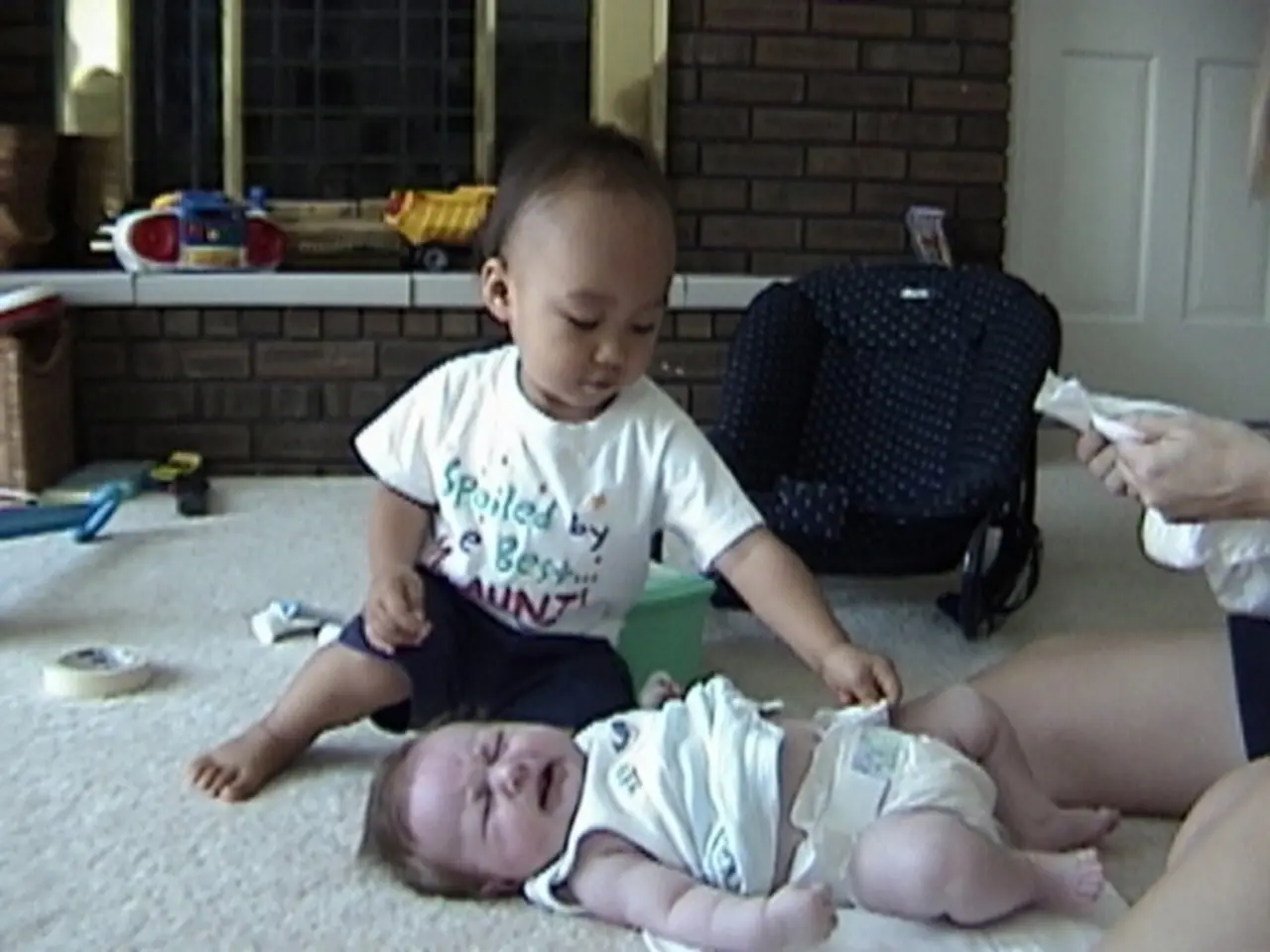Managing Diapers for Multiple Births: Guidance for Twins and Triplets
=================================================================
Managing diaper changes for twins or triplets can be a challenging task, but with a few strategic steps, it becomes more manageable and efficient. Here are some practical tips to help families navigate this aspect of parenting multiples.
Stocking Up on Diapers
One of the most effective strategies is to stock ample diapers in advance. Buying when sales occur, since twins require about 150 diapers per week and triplets even more. This ensures that parents never run out of supplies, saving time and effort.
Easy-Change Outfits
Dressing babies in easy-change outfits, such as those with zippers or magnets, can speed up changes and reduce fussing. This is particularly useful when dealing with multiple babies.
Synchronized Diaper Changes
Changing twins simultaneously when possible can save time and keep babies on a similar schedule. For triplets, recognise that you will sometimes need to attend to babies sequentially and may have to prioritise those who need immediate attention, accepting some waiting time for the third baby.
Tracking Diaper Changes and Feedings
Tracking diaper changes and feedings with logs or apps helps manage time better, spot patterns, and maintain routine. This aids predictability and efficiency, making the diapering process smoother.
Setting Up a Diapering Station
Setting up a well-organized diapering station stocked with diapers, wipes, creams, and fresh clothes can avoid repeated trips between rooms. A convenient location in the house, such as a changing table in the nursery or a designated area in the living room, is important.
Planning for Help and Self-Care
Planning for help and self-care is crucial. Ask for and accept assistance, rest when possible, and maintain mental health awareness, as caring for multiples is demanding.
Additional Strategies
Additional fun strategies include turning diaper changes into games or races with twins to keep the task manageable and light-hearted. Wet bags are great for storing dirty diapers on the go, while diaper pails can hold multiple soiled diapers, reducing the need for frequent trips to the trash can.
Clear and open communication between partners or caregivers is crucial in ensuring a smooth diapering routine. Creating a schedule or system that allows both parents or caregivers to take turns with diaper changes can help distribute the workload and provide each person with some well-deserved breaks.
Considering the size, absorbency, and comfort of diapers is crucial for ensuring a good fit and preventing leaks. Creating a checklist of essential items such as diapers, wipes, diaper creams, and changing pads helps avoid running out of supplies.
Portable changing mats ensure a clean and comfortable surface, wherever you are. Comfortable diapers with soft materials and elasticized waistbands prevent irritation and ensure a better fit.
By following these strategies, families can create manageable and efficient diapering routines for their twins or triplets.
- Adequate preparation involves stocking up on an abundance of diapers in advance, ensuring there is always an ample supply for twins or triplets.
- Dressing babies in easy-change outfits with zippers or magnets not only speeds up diaper changes but also reduces fussing when dealing with multiple infants.
- Simultaneously changing twins when possible can save time and help keep babies on a similar schedule, while prioritizing those in need of immediate attention for triplet diaper changes is essential.
- Tracking diaper changes and feedings using logs or apps assists parents in managing their time more efficiently, helping them spot patterns, maintain routines, and predict when changes are needed.
- Setting up a well-organized diapering station enhances convenience by keeping diapers, wipes, creams, and fresh clothes nearby, reducing the need for frequent trips throughout the house.
- Planning for assistance, rest, and mental health is vital for caregivers of multiples, as the demands of parenting twins or triplets can be overwhelming. Additionally, creating a schedule or system for diaper changes helps distribute the workload between caregivers, allowing for timely breaks and promoting self-care.




